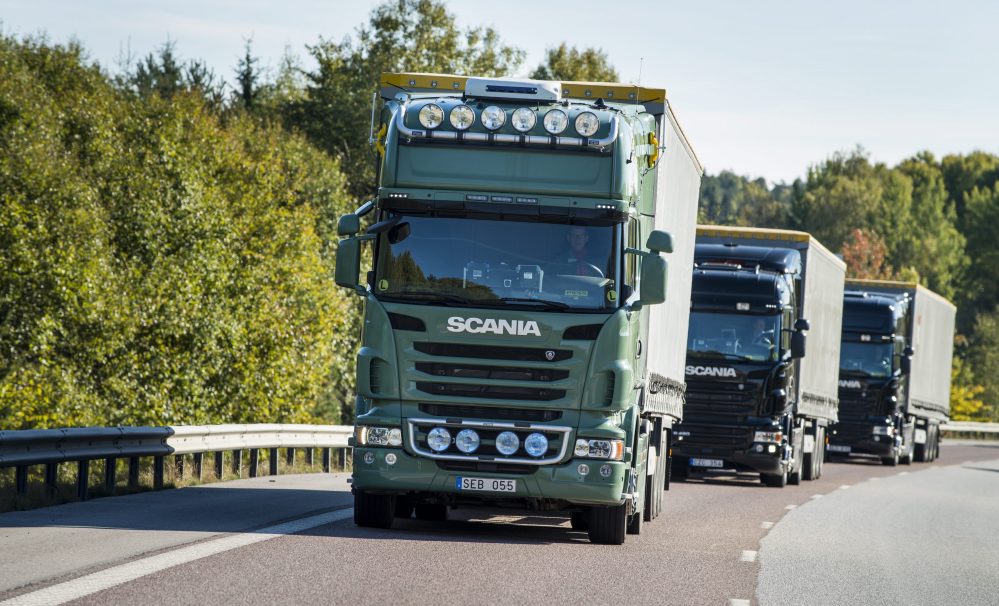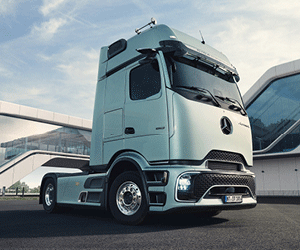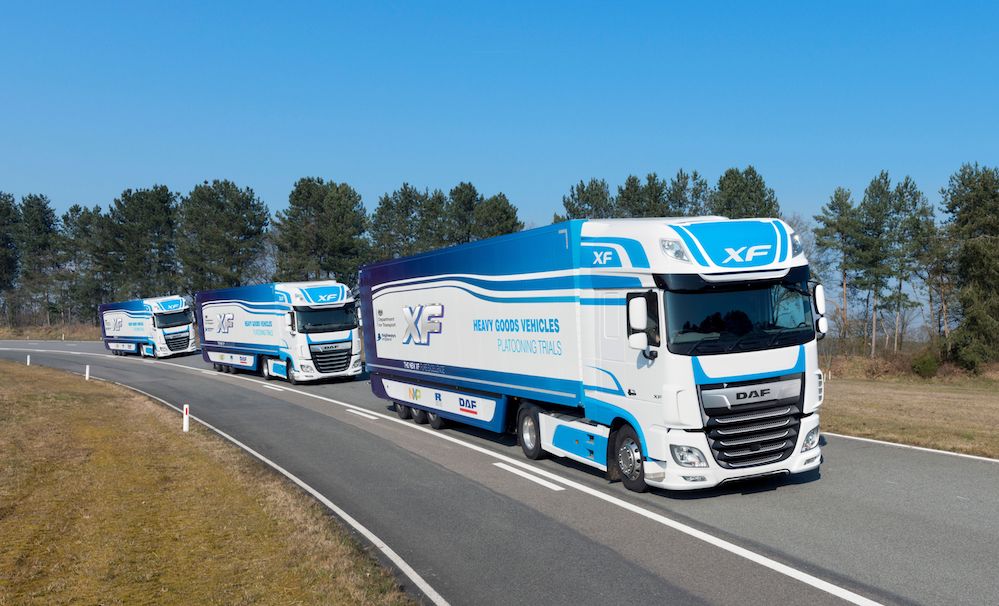RHA Chief Executive, Richard Burnett, said:
“Of course we welcome improvements to the way the road freight industry works and we understand the benefits that such a mode of operation would bring. However, currently the focus seems to be on the technology behind the system. Safety has to come first and it cannot be compromised. It is crucial that this element of the concept gets the highest priority.”
Peter Millichap, UK Director of Marketing at Teletrac Navman:
“News that self-driving lorries are to be tested on major British roads by the end of 2018 has hit headlines everywhere this morning. The adoption of this technology, currently being tested in the US, has the potential to have a significant impact on our industry, as well as effecting the everyday road user. We’re now talking about drivers potentially being in charge of a train of vehicles so from their perspective, wireless technology comes with increased responsibility and additional safety considerations. Additionally, fleet managers need to consider that they may have an increased number of assets in the hands of one individual. Should something go wrong, the cost to the business and potential harm to the public could be even greater. This move by the UK government, while an exciting one, certainly illustrates the importance of deploying telematics to have complete visibility that drivers can safely, and responsibly manage this potential change to operations, providing reassurance to both customers and the general public.”
Tony English, CEO, Isotrak:
“The plan to trial small convoys of partially driverless vehicles on major British roads by the end of 2018 may be a stepping stone to a completely driverless industry, however it does raise several considerations for the industry. Current driver behaviour measurement processes may need to change to reflect the driving style needed for convoys, while in terms of telematics, technologies will need to evolve to align with the requirements of semi-autonomous lorries. Fleet operators will need to change business models to leverage the full benefit of vehicles such as these, which for example can include scope for hauliers to collaborate by sharing loads between major depots, thereby streamlining efficiencies and costs. Overall the potential opportunities to be gained from this trial are exciting, but if our economy and industries are to benefit, these kinds of challenges will need to be successfully navigated.”
Christopher Snelling, FTA’s Head of National Policy:
“Platooning could be an innovative means of reducing fuel use so saving costs and reducing carbon and air quality emissions. Driving closely together, platoons of trucks take up less space on the road, and travelling at constant speeds can help improve traffic flows and reduce tailbacks. However, the system has to be shown to be safe on the roads and to deliver the promised benefits. The sooner the trial takes place, the sooner the UK logistics industry, which represents 11% of the UK’s non-financial business economy, can know if this will be the right route for the future. Technology is the solution to emissions, road safety and managing costs, platooning could be a real opportunity to optimise logistics on the road – we need to know if it is the way forward as soon as possible.”
Rob Wallis, Chief Executive of TRL:
“The UK has an unprecedented opportunity to lead the world in trialling connected vehicle platoons in a real-world environment. TRL and its consortium of leading international partners, have the practical and technical knowledge gained from previous projects to understand what is required to put a connected vehicle platoon on to UK roads safely. The team are now taking that expertise and uniquely applying it within live traffic operations.”
Richard Cuerden, Academy Director at TRL, added:
“Platooning technology has the potential to deliver a wide range of benefits to all road users. As well as supporting the Department for Transport and Highways England in informing future infrastructure investments and policy decisions, the trials will highlight the services that platooning may offer road users and whether these can safely contribute to a reduction in vehicle emissions, improved journeys and greater economic prosperity.”
Transport Minister, Paul Maynard:
“We are investing in technology that will improve people’s lives. Advances such as lorry platooning could benefit businesses through cheaper fuel bills and other road users thanks to lower emissions and less congestion. But first we must make sure the technology is safe and works well on our roads, and that’s why we are investing in these trials.”
Jim O’Sullivan, Highways England Chief Executive:
“We are pleased to be supporting the Government’s ambition for the UK to be a global leader for innovation. The trial has the potential to demonstrate how greater automation of vehicles – in this instance, HGVs – can deliver improvements in safety, better journeys for road users and reduction in vehicle emissions. Investing in this research shows we care about those using our roads, the economy and the environment, and safety will be integral as we take forward this work with TRL.”
What is your view on the platooning proposal?






